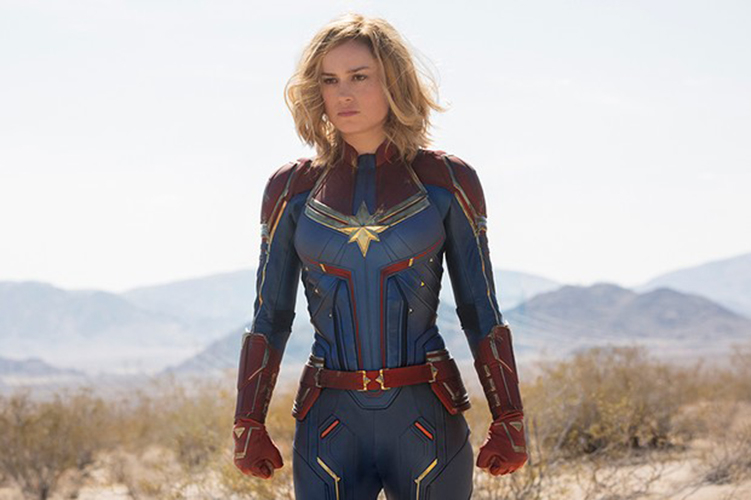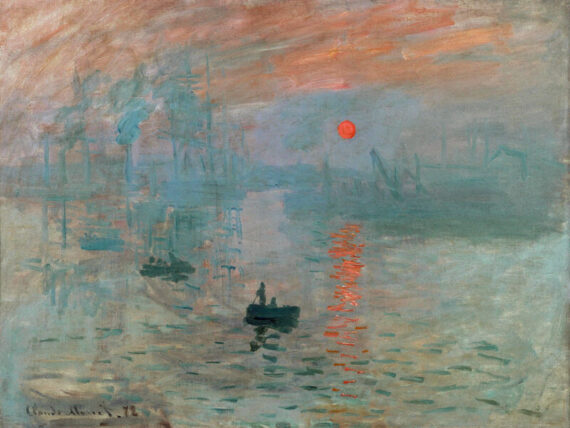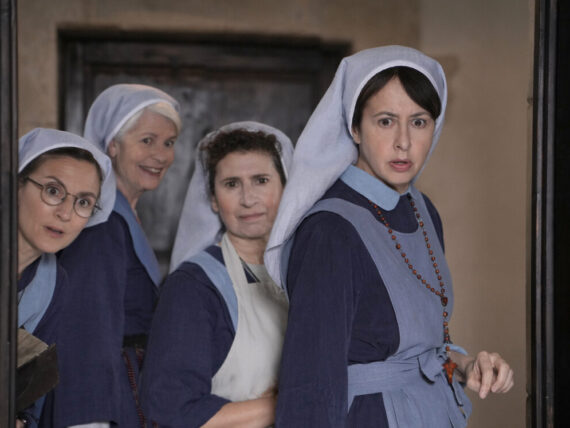Alice O’Hare’s first contribution to our blog is a review of Captain Marvel, which will be screened at Royal William Yard on Thursday 12 September as part of our Open Air Cinema season.
Combining glossy and slick visuals with intriguing, endearing and often superhuman characters, the modern Blockbuster has seen somewhat of a resurgence in recent years. At the very forefront of these successes is Marvel, a studio that, despite consistently dominating the box office had worryingly not released a film with a female hero at its centre until 2019. Captain Marvel, however, changes that.
Directors Anna Boden and Ryan Fleck boldly and immediately throw us straight into the faraway world of Hala, where our amnesiac hero currently going by the name of Vers (Brie Larson) is about to partake in a huge war on behalf of her alien race, the Kree, alongside mentor and leader Yon-Rogg (Jude Law). All within the opening ten minutes, Vers ends up plummeting towards Earth in 1995, and whilst the pace of the film never lets up until the credits roll, a more complex dimension to events is immediately introduced as Larson’s character slowly remembers and discovers more about her past life as pilot Carol Danvers. Danvers’ intelligence and power are never in doubt by anyone other than herself, and so Captain Marvel becomes an enthralling journey of self-discovery first and a raucous action romp second.
Contrasting the vivid, otherworldly mise-en-scene of Hala is the surprisingly more interesting setting of Earth. ‘90s nostalgia is rife as a soundtrack that includes TLC, Nirvana and Bon Jovi rings out across an exploration of the open American frontier. It is in this more familiar environment that the characters really blossom; in particular, the dynamic between Danvers and on-earth mentor Nick Fury offers a fresh take on the tropes of the buddy film, with some of Captain Marvel’s most glorious and ferociously feminist moments coming from the way Danvers stands up to her mentor, a man who, prior to Danvers’ arrival, has never really been questioned by the heroes he manages.
Having made her way to the mainstream through the likes of indie works including Short Term 12 and her Oscar-winning turn in the superb Room, the role of Danvers is worlds away from anything that Larson has tackled before, but she makes the transition seamlessly. Her experience and talent in more gritty and understated roles shines through in the complex moments of Danvers’ identity crisis, with the internal struggle of worrying if one is good enough being expertly tackled by Larson to amount in final showdown that is in equal parts thrilling and moving as the titular hero realises her strength and transitions into a god-like figure.
For all the superpowers and explosions of the aforementioned final showdown, the core charm of Danvers comes through the fact that she is fundamentally just like the rest of us. As Larson’s character reunites with former best friend Maria for the first time to team up and stop alien threat reaching earth, it becomes clear that the message of the film is not that we should strive for the greatest physical strength; instead, it is faith in ourselves and in those close to us that will save the day. Much like Danvers herself then, Captain Marvel is an out-of-this-world story with a whole heap of humanity.
Alice O’Hare









Comments
Comments are closed.